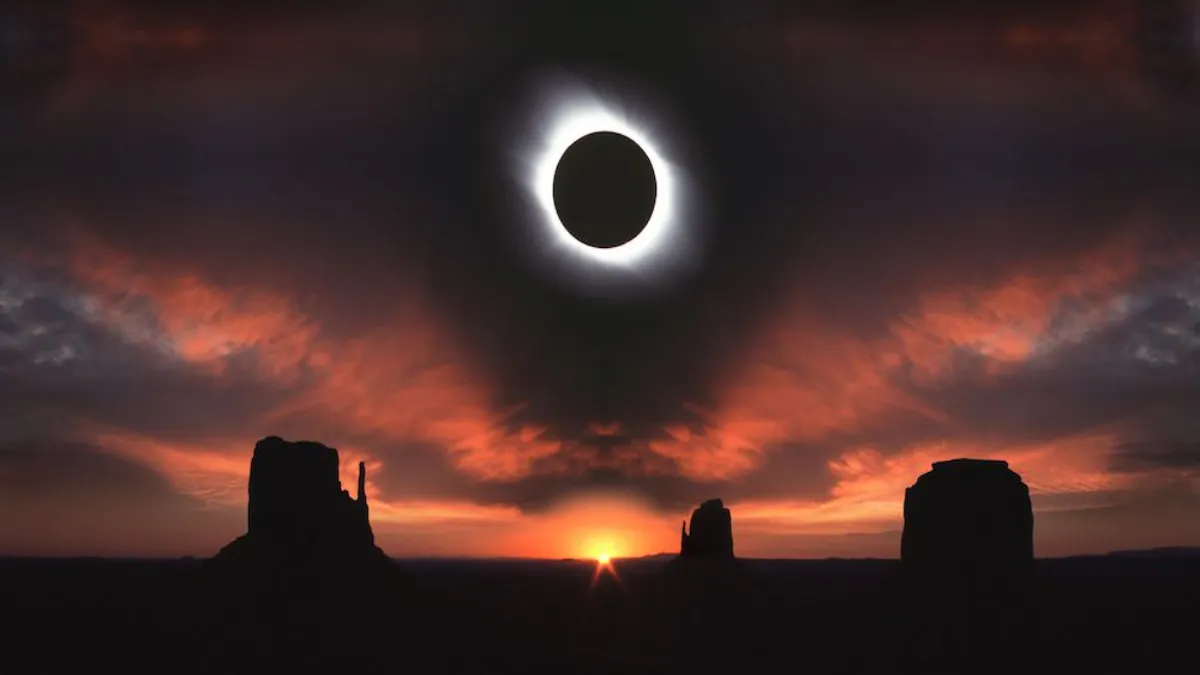Throughout history, solar eclipses have often been shrouded in superstition and fear, with many cultures viewing them as omens of doom or bad luck. But why did people perceive these awe-inspiring celestial events with such trepidation? Let’s delve into the stories and beliefs from ancient times that contributed to the notion of solar eclipses as harbingers of misfortune.
In ancient civilizations, where scientific understanding was limited and mythology shaped beliefs, solar eclipses were often interpreted as supernatural occurrences or divine interventions. The sudden darkening of the sky during the day was perceived as a disruption of the natural order, leading people to fear that the gods were angry or that a great calamity was imminent.
One prevalent mythological explanation comes from ancient China, where it was believed that a solar eclipse occurred when a celestial dragon devoured the sun. To frighten away the dragon and prevent disaster, people would make loud noises, bang drums, and even shoot arrows into the sky. Similarly, in Norse mythology, it was said that the sun was being chased by wolves, and an eclipse signaled that one of these wolves was catching up, threatening to devour the sun.
In other cultures, solar eclipses were associated with the activities of malevolent spirits or deities. In Hindu mythology, the demon Rahu was believed to swallow the sun during eclipses, causing darkness and chaos. To counteract this perceived threat, Hindus would perform rituals and prayers to protect themselves from the demon’s influence.
Moreover, the unpredictability of solar eclipses added to their mystique and fueled fears of the unknown. Without the scientific knowledge we have today to predict and understand eclipses, ancient societies viewed these celestial events with a mixture of awe and anxiety. The sudden darkness during the day could instill a sense of foreboding, leading people to anticipate disaster or upheaval.
Additionally, solar eclipses often coincided with significant events or transitions in society, further reinforcing the belief in their ominous nature. For example, eclipses sometimes occurred during times of war, famine, or political turmoil, leading people to associate them with hardship and adversity.
Over time, as scientific understanding advanced and eclipses became predictable phenomena, the superstitions surrounding them gradually waned. Today, we know that solar eclipses are natural occurrences caused by the alignment of the sun, moon, and Earth, with no inherent connection to luck or fortune. Instead of fearing them, we marvel at the beauty and wonder of these cosmic spectacles, appreciating the intricate dance of celestial bodies that has captivated humanity for millennia.
In conclusion, the belief that solar eclipses were bad luck stemmed from a combination of mythological interpretations, cultural traditions, and the mysteries of the unknown. While these superstitions may have once held sway, our modern understanding of eclipses allows us to appreciate them as awe-inspiring celestial phenomena, devoid of supernatural significance.


